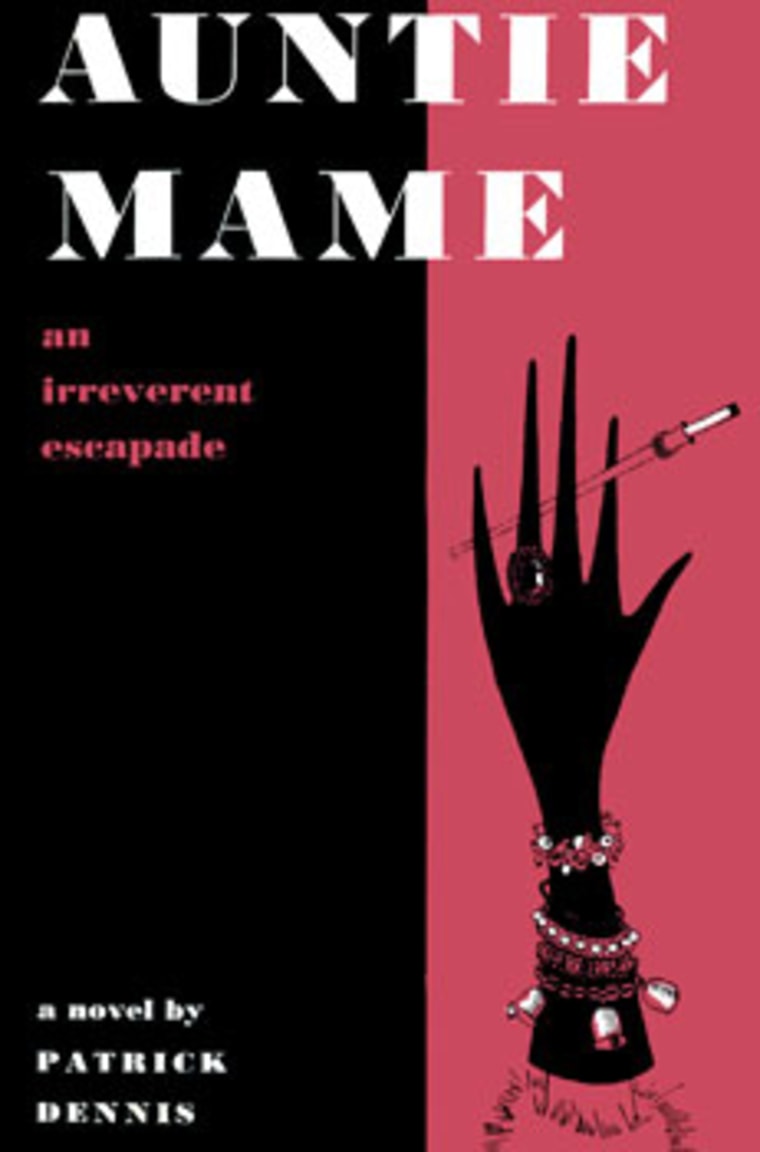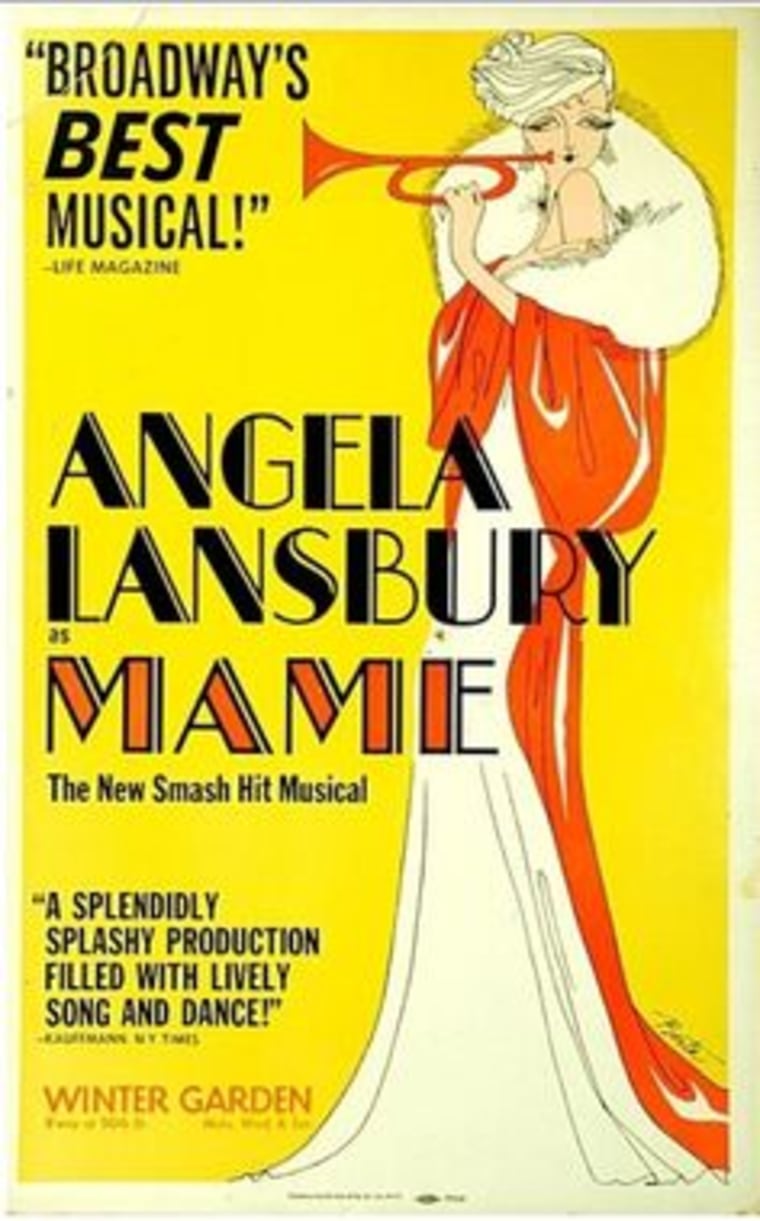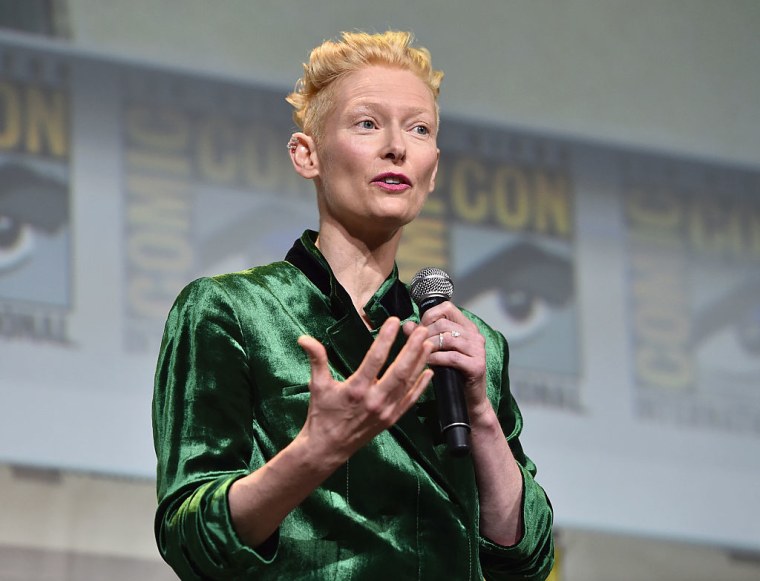When Vanity Fair sat down with Oscar-nominated screenwriter Annie Mumulo to discuss her friendship with Kristen Wiig, her breakout hit "Bridesmaids," and her more recent projects ("Joy," "Bad Moms"), the topics at hand were women in Hollywood, women in comedy, and the general ups and downs of a life in show business. What senior Hollywood writer Julie Miller likely didn’t expect was a big queer bombshell: Mumulo is currently adapting "Auntie Mame" for Oscar-winner Tilda Swinton. This is big news for queer people, particularly gay men, as Mame Dennis is one of our most cherished characters in the worlds of fiction, theatre, and film.

When I was just emerging from the closet, a late bloomer at the age of 25, two women who would soon be known to my friends and family as my adoptive lesbian moms brought me to Rehoboth Beach, DE; they knew I was scared, and they wanted me to meet gay and lesbian couples who had been together for years, having fun and loving their life. At one party, their friend Lee approached me, and said, “Now, I want you to take this piece of paper, and every time you hear a word you don’t understand, just write it down.”
It was a good joke; everyone laughed. In that moment, I wondered if they were laughing at my expense, but something in their eyes and smiles told me that I was perfectly safe. I didn’t exactly get the joke, but I knew that I was going to be okay. I didn’t get the joke because I had yet to meet Mame.
Originally created by novelist Patrick Dennis (née Edward Everett Tanner III) in 1955, the story of an orphan placed under the care of his eccentric, vivacious aunt was adapted for the stage by Jerome Lawrence & Robert E. Lee in 1958, and a film six months later, both starring Rosalind Russell. In 1966, a Broadway musical version by composer/lyricist Jerry Herman ("Hello, Dolly!," "La Cage Aux Folles") premiered, featuring a celebrated performance by Tony-winner Angela Lansbury. The musical version became a film in 1974, starring Lucille Ball – who, it must be said, we love in spite of this performance rather than because of it.

All of the versions of the story follow roughly the same pattern: a conservative businessman dies, and his orphaned young son Patrick is placed in the care of his freewheeling sister, Mame. She loves him instantly, and he gives her life a new purpose: “I’m going to open doors for you,” she tells him, “doors you never even dreamed existed.” Soon enough, she encounters her antagonist in her quest: Dwight Babcock, Patrick’s trustee from the Knickerbocker Bank, who is determined to give him the conservative upbringing his father intended. For the next nine years, Mame and Babcock do battle as he chooses Patrick’s schools, and eventually, his future wife.
And through the good versions and the bad, generations of gay men have loved Auntie Mame. We love her for her humor and her wit, and we envy her travels and adventures; but more than that, she is the mother figure every gay man wishes for. While there’s nothing explicitly queer about the story, Mame personifies the freedom to be whomever you want to be. While the fictional Patrick is both cisgender and heterosexual, it’s clear that she would accept him and love him no matter who he is or what he grew into – unless, of course, he became “one of the most beastly, bourgeois, babbity snobs on the Eastern seabord” –- which, momentarily, he does (spoiler alert: she cures him of his affliction).
Whatever kind of childhood a queer reader or audience member might have had, "Auntie Mame" (or for the musically inclined, simply "Mame") offers an escape into a world of anything goes, peppered with fabulous costumes, extravagant parties, witty barbs, cigarette holders, and bootleg gin. It’s no accident that in the 1955 film, when Patrick first meets Mame, two unmistakable lesbians, sixtyish women in tweedy suits, are the first people our young hero sees in his aunt’s Beekman Place apartment. They have no lines, but they’re featured prominently throughout the party scene, an integral part of Mame’s universe. This is a space that doesn’t just tolerate queerness; it celebrates it. And we all left the theatre wishing that we had an Auntie Mame.
But here’s what anyone taking on this timeless story needs to know: Mame is many things; She loves life, she’s sophisticated, she’s funny – sometimes on purpose and sometimes despite herself. But more than anything, she represents unconditional love. Whenever my friends and I sit around and cast classic musicals with today’s stars (yes, this is actually something we do), everyone thinks that in order to be a great Mame, all you need is arch comic timing and the ability to glide down a staircase. But the true secret to Mame is warmth. So long as an audience knows that she loves fiercely and unconditionally, they will follow her anywhere.

Tilda Swinton might very well be our next Mame Dennis. She’s not an actor well-known for warmth. She’s a brilliant technician, but best known for playing characters that are best described as cool, even icy. Her recent performance in "Trainwreck" proved that she’s more than capable of showing us sides to her that we’ve never seen before, but big-hearted and unconditional love are facets of Swinton we’ve yet to experience on-screen.
If she fails, the film will come and go, but Mame will live on. I hope she succeeds. There isn’t a generation who doesn’t need to be reminded that life is a banquet, or for whom Mame shouldn’t open doors for … doors they never even dreamed existed.
Eric Peterson has been a consultant and educator in the fields of diversity and inclusion for more than 17 years. He lives in Washington, DC.
